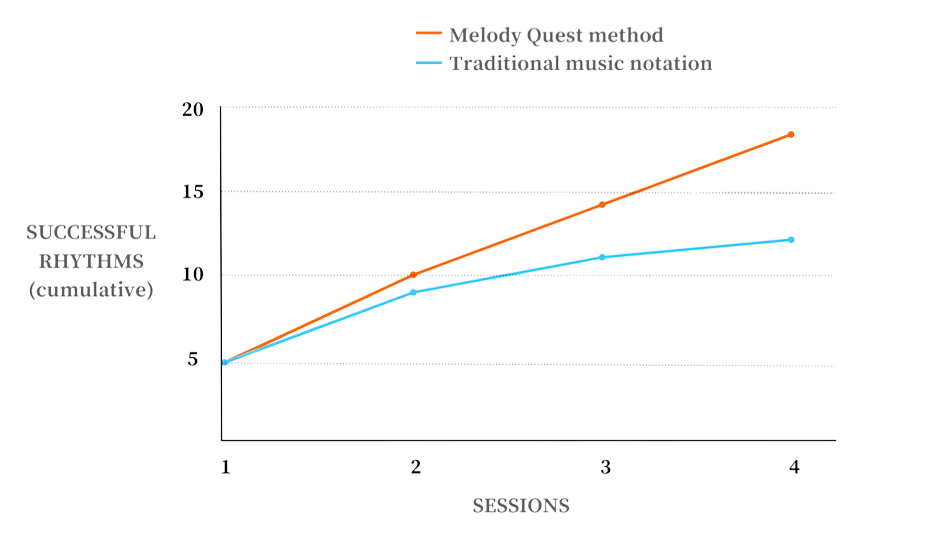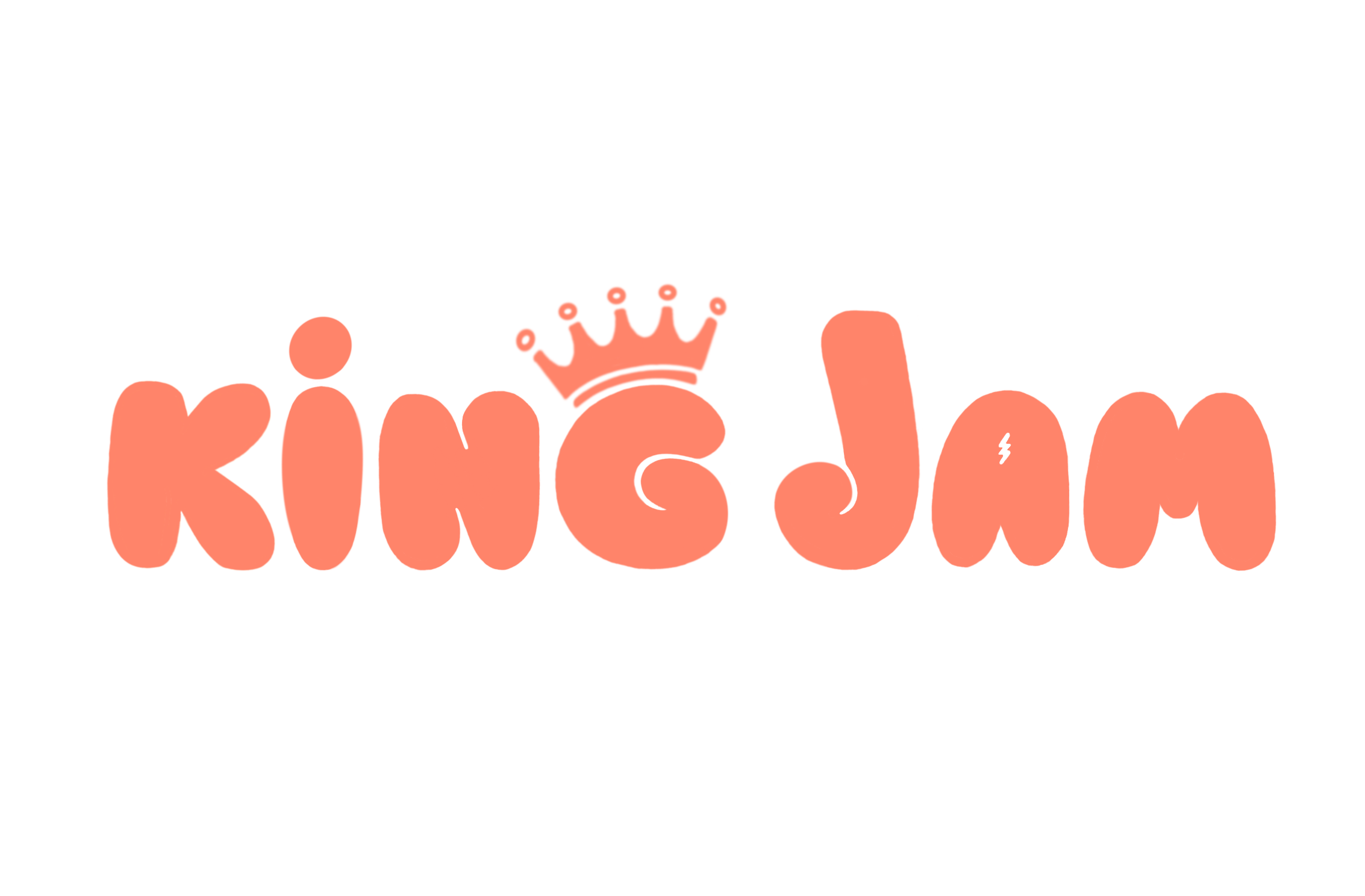
Where Interactive Learning and Entertainment Converge
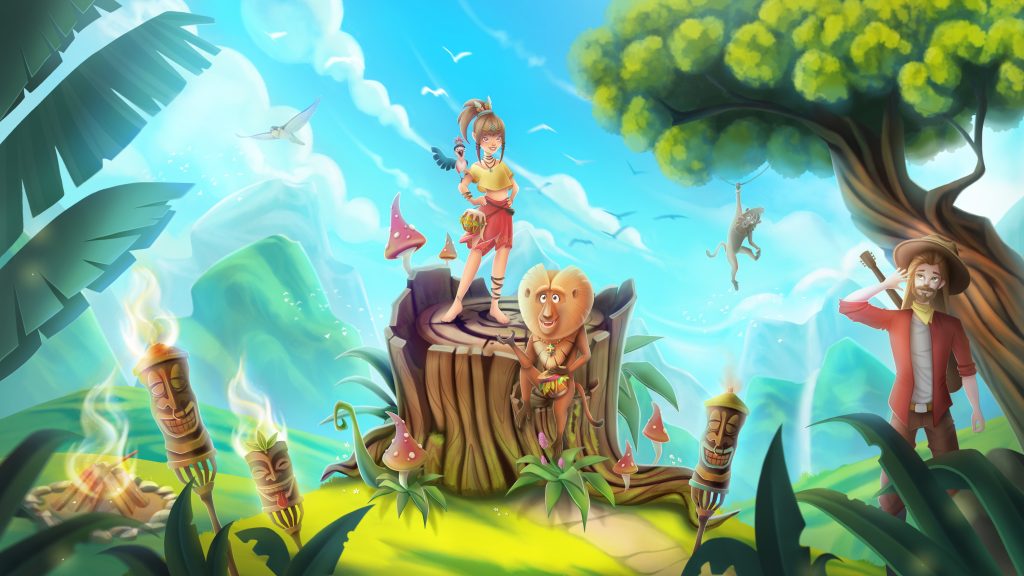
King Jam LLC aims to revolutionize how children apply themselves to learning by fulfilling an unmet need in music education through gaming.
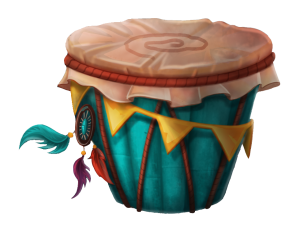
Introducing Melody Quest: the first music-learning rhythm RPG for mobile.
Melody Quest is an app that gamifies music education in a 3D world unlike any other screen time option currently on the market.
The game adheres to classic video game tropes (level up your character, gain special abilities, and reach the boss)– but with a twist: traditional weapon-based combat is replaced with instrument-based jamming.
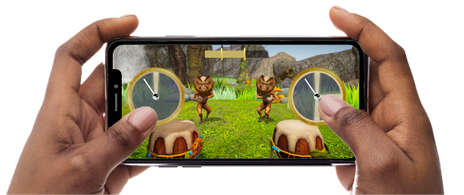
At the heart of music lies the beat.
The goal is not to teach one specifc instrument such as piano or guitar, but to provide an engaging space for kids to play with the essential elements of music that apply to ALL instruments: rhythmic awareness and two-hand coordination.
We have an opportunity to engage children in a familiar, interactive medium where they can feel curious, confident, and in control.

Cameron Radke [Founder / CEO]
Based in San Diego, Cameron has over a decade of experience teaching music to students of all ages and boasts exceptional reviews. He leads a band that blends Americana and Grateful Dead-influenced high-energy tunes with over 400 shows to date, and also performs as a solo artist for wedding ceremonies, cocktail hours, and dinners. Cameron graduated from San Francisco State University with a Bachelor of Arts: Music degree in 2014.
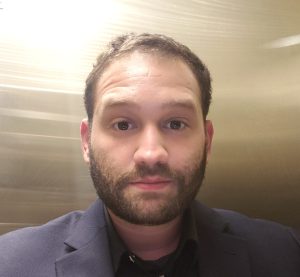
Jean Cheung [CTO / Project Manager]
Based in Barcelona, Jean leads InnoFlops Games with a team from around the world in Venezuela, Canada, and New Zealand that specializes in the Unity game engine. Jean has two decades of experience in video game production, broadcasting, and esports in Latin America where he organized tournaments, partnerships, and introduced anti-cheating measures.
Pilot Program
Cameron invented a clever and intuitive system to teach the concept of musical time that combines visual, auditory, and kinesthetic learning.
As a private music teacher, he had the ability to test the effectiveness of his rhythm method on students of all ages and varying skill levels. A 4 year old as well as an 84 year old grasped the visual concept immediately, while these same students struggled to read and write traditional music notation.
A Pilot Program consisting of 15 students age 6-12 was initiated to more concretely test these observations. Not only did our framework improve performance, but also inspire self- motivated practice between sessions.

